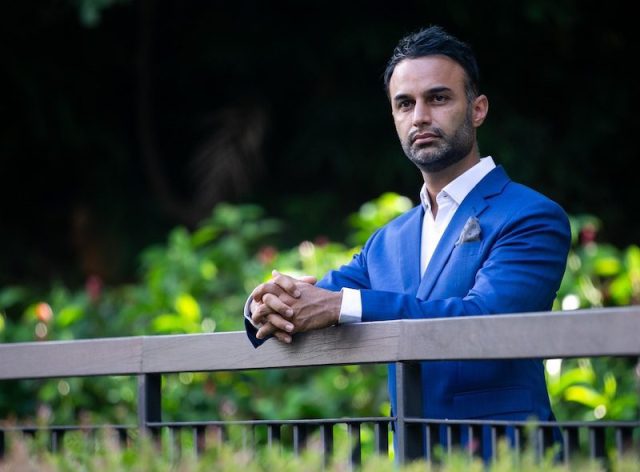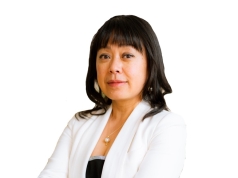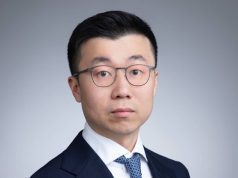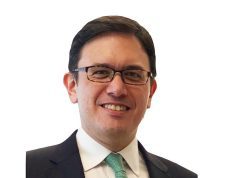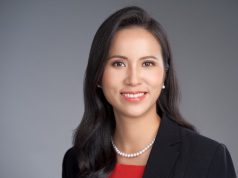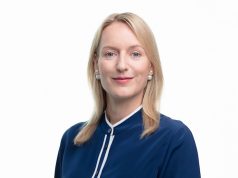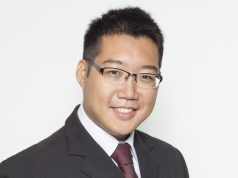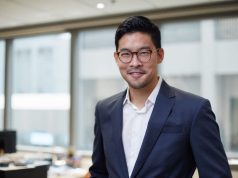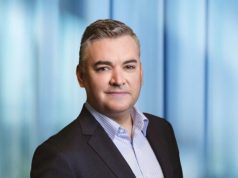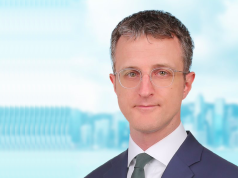Hotspot: Investing in Private Credit Funds with Deep Singh, Founder & CEO of AsiaLinq Investments
An exclusive interview on investing in Private Credit Funds with Deep Singh, Founder & CEO of AsiaLinq Investments and CrediLinq Digital Economy Fund. Deep Singh is the former Chief Capital Officer of a $1.3 billion credit investment firm, former Head of Structured Trade Finance at Merrill Lynch with a $12 billion loan book, and holds an Executive MBA from Harvard Business School. View key highlights and read the full interview below.
“ Higher yield is a function of higher risk but private credit funds often capitalize on inefficient market structures “
AsiaLinq Investments Founder & CEO Deep Singh

Deep Singh is the founder & CEO of AsiaLinq Investments and CrediLinq Digital Economy Fund, and former Chief Capital Officer of a $1.3 billion credit investment firm and former Head of Structured Trade Finance at Merrill Lynch with a $12 billion loan book. Deep Singh also holds an Executive MBA from Harvard Business School. AsiaLinq Investments is a Singapore Variable Capital Company (VCC) regulated by Monetary Authority of Singapore and domiciled in Singapore. CrediLinq Digital Economy Fund has a unique value proposition, focusing on financing small and medium sized enterprises (SMEs), and ecosystems servicing those SMEs in Asia. The Fund uses a digital lending platform that is codified and developed to process alternative and traditional data points via API plug-ins, which in turn shortens the loan approval process to less than a day and allowing the fund to scale rapidly. The duration of the loans is predominantly short and ultra-short, while the fees and interest charges are risk-adjusted, using machine learning techniques based on the real-time data. Visit: AsiaLinq Investments | CrediLinq.ai
Hotspot: Private Credit Funds
Private markets, alternative investments, private equity, venture capital, private credit, hedge funds are hot topic today. Being able to generate 10%, 20% or 30% returns on portfolio uncorrelated to market / public market is a dream come true for any investment manager, advisor, private banker, family office, professional investor or UHNW & HNW investor today. Is this really possible? What are the trade-offs? View key highlights and read the full interview below.
Key Interview Highlights with Deep Singh
On Private Credit, Opportunities, Returns & Risks, AsiaLinq Investment, Career of Founder & CEO Deep Singh
- Private Credit Funds: 2022 indeed seems to be the year of private credit with many secular trends and macro events, such as higher interest rates
- Traditional Investors in Private Credit: Allocators who care about duration matching, such as pension funds and insurance companies
- Huge Ticket Size: US$50 to US$100 millions and big funds generally stay invested for 3-5 years since private credit funds are less liquid than funds investing in public markets
- Increased Interest in Private Credit Funds: Family offices and high net worth individuals who want to have exposure to private markets and looking to benefit from stable and lower volatility yield
- Bond Funds: Bond funds generally offer daily liquidity because the underlying assets are publicly traded
- Bond Fund Volatility: Prices tend to be more volatile for bond funds, especially when markets are under stress and emotions are running high.
“ The reason the probability of default equation exists is because we actually expect defaults “
- Private Credit Funds: A well-diversified portfolio should remain uncorrelated and be able to sustain a downturn in the economy whilst still providing yield
- Private Credit Fund Benefit: Higher returns that private credit offers, stemming from ability to negotiate deals bilaterally
- Risk: Higher yield is a function of higher risk but private credit funds often capitalize on inefficient market structures that could be a product of regulatory or administrative burdens
- Mega Funds: Blackstone and KKR launching credit funds in the region
- Traditional Credit Review Process: Manual processes that often required big operations, risk and collections teams in order to process and manage the loans
- Why Setup AsiaLinq: There were rich data sets available that were not utilized when making credit decisions. That observation led to the idea of AsiaLinq Investments – a technology enabled asset management company
- On using AI & Technology: There’s nothing mystical or secretive about what we do – it’s just a different way of looking at data and using computers to do the heavy lifting of data collection and processing.
- CrediLinq Digital Economy Fund: Offers short term loans to selected businesses in Asia, using financial, transactional and platform data to assess their credit worthiness and ability to pay back the loans. Automated workflows help us to process large data sets, and therefore deploy capital rapidly and at a scale.
- Why Digital Economy: Digital economy sounds like a flashy term … … simply means that the Fund is aiming to provide credit to companies that operate and conduct business through internet based marketplaces
- Achieve Zero Defaults: I don’t think it’s possible to completely eliminate defaults since there will always be so-called “Black Swan” or “3-sigma” events that are impossible to predict or model. But the key is diversification which is possible thanks to computers processing and monitoring the loans.
- Private Credit Fund Portfolio 101: The reason the probability of default equation exists is because we actually expect defaults. What we spend our time thinking about is a well-diversified pool of loans so any given loss or default doesn’t impact the return too much.
- Private Credit Opportunities: The greatest opportunities present themselves when there is dislocation in the markets.
- If You Graduate at 21 or 23 Today: I wouldn’t choose either of those options (banking, loans, investments, hedge funds, investment banking, private equity, venture capital etc) … … I would choose a career in big tech and computer engineering (vast majority of all trading is conducted using algorithms, banking is fast becoming a technology business).
The Full Interview:
Deep Singh on Private Credit Funds
AsiaLinq Investments Founder & CEO

On Private Credit, Opportunities, Returns & Risks
1. Private credit funds are suddenly gaining popularity especially with the recent stocks & tech crash. Who are the traditional long-term investors in private credit funds? Why? As equity or direct deals can give generate 20% / 30% / 50% or even 100% returns in 6 to 12 months. What is the typical range of allocation (dollar value) for them, and what is their target holding period?

Deep: 2022 indeed seems to be the year of private credit with many secular trends and macro events, such as higher interest rates, aligning in favour of the asset class. Traditional investors in private credit have been allocators who care about duration matching, such as pension funds and insurance companies. The ticket sizes from these mega funds tend to be huge – anything from US$50 to US$100 millions and big funds generally stay invested for 3-5 years since private credit funds are less liquid than funds investing in public markets. Private credit funds, however, offer uncorrelated yield with lower volatility that asset allocators find attractive.
With regards to returns from equities and direct deals, well – they can also lose money, as we are seeing more recently. Private credit on the other hand, assuming a well-diversified portfolio should remain uncorrelated and be able to sustain a downturn in the economy whilst still providing yield.
” Uncorrelated yield with lower volatility that asset allocators find attractive “
2. Who are the new investors taking an interest in private credit funds?

Deep: With equities still overvalued, despite of the recent correction, and fixed income suffering from elevated inflation expectations, we have seen increasingly more interest from family offices and high net worth individuals who want to have exposure to private markets and looking to benefit from stable and lower volatility yield. In addition, traditional allocators are also increasing their allocations to private credit.
” more interest from family offices and high net worth individuals “
3. Bonds yield between 3% to 7% p.a. while high yield (higher risk) bonds are generating 7% to 12% p.a. Are private credit funds taking more risks, as some private credit funds also generate 7% to 12% p.a.?

Deep: Naturally a higher yield is a function of higher risk but private credit funds often capitalize on inefficient market structures that could be a product of regulatory or administrative burdens. A good example would be unwillingness by the banks to lend money to small companies.
Private credit funds also tend to benefit from information asymmetry as well as illiquidity premium that exist in private markets.
Finally, bond funds carry duration mismatch. Some offer daily or monthly liquidity whilst the underlying bonds are 3-10 years in duration. Private credit funds are better matched where they can be either open ended funds with shorter duration loans or closed ended for longer duration loans.
” Naturally a higher yield is a function of higher risk but private credit funds often capitalize on inefficient market structures “
4. What are the opportunities in private credit? Will there also be less liquidity, in exchange for higher yield?

Deep: There are plenty of opportunities in private credit space, especially here in Asia. This is evident from mega funds, such as Blackstone and KKR launching credit funds in the region. The focus tends to be around infrastructure and real estate projects but also offering financing to companies that have not been able to obtain loans from traditional credit providers due to their low revenue, lack of audited financial data and industry or risk exposure.
” mega funds, such as Blackstone and KKR launching credit funds in the region “
Private Credit vs Publicly Traded Bonds / Debts

1. What is really the main difference between a bond fund and a private credit fund? What are the benefits of investing in private credit funds over bond funds?
Deep: The first and most obvious difference is of course the liquidity profile – bond funds generally offer daily liquidity because the underlying assets are publicly traded. While daily liquidity allows investors an option to divest immediately, it also means that mark to market effects can have a significant impact on portfolio returns. Prices tend to be more volatile for bond funds, especially when markets are under stress and emotions are running high.
A clear benefit of investing in private credit over bond funds is naturally higher returns that private credit offers, stemming from ability to negotiate deals bilaterally. Also, private credit funds offer something called illiquidity yield from their quarterly or semi-annual liquidity profile.
” higher returns that private credit offers, stemming from ability to negotiate deals bilaterally “
2. Is there any allocation limit for private credit funds? In a bond fund, the fund can receive a few hundred millions or billions of daily investments from institutional investors, intermediaries (banks, private banks, wealth management), and direct retail subscriptions from individuals, which can then be invested in a broad range of liquid public or private bonds.
Deep: That’s a good question – private credit fund managers would answer no, while asset allocators may have a different view. Studies, however, have found that private credit funds face an allocation limit if their mandates are linked to a specific geography, strategy, or industry.
On AsiaLinq Investment, CEO Deep Singh & CIO Kaia Reet Parv

1. You and Kaia founded AsiaLinq Investments in early 2022. Why did you setup AsiaLinq Investments when you & Kaia were already managing $1.3 billion in private credit strategies? Do you have a new vision? Do you have a goal or target for AsiaLinq?
Deep: Both myself and Kaia (Chief Investment Officer) have worked for traditional credit providers, be it Bank of America Merrill Lynch or the aforementioned private credit fund ($1.3 billion fund). We observed a plethora of manual processes that often required big operations, risk and collections teams in order to process and manage the loans. At the same time there were rich data sets available that were not utilized when making credit decisions. That observation led to the idea of AsiaLinq Investments – a technology enabled asset management company that leverages on the secular trends that are omnipresent, such as digitalization of economies and rich data sets from online transactions. COVID-19 only exacerbated those trends because companies were forced to be present online in order to survive.
As a team we think there’s a better way of underwriting credit and providing underserved companies access to loans. We also think that automation of workflows and processes helps us to make better and faster decisions. There’s nothing mystical or secretive about what we do – it’s just a different way of looking at data and using computers to do the heavy lifting of data collection and processing.
” There’s nothing mystical or secretive about what we do “
2. Under AsiaLinq Investments, you have a new fund named CrediLinq Digital Economy Fund. “Digital Economy” sounds exciting and it resonates well with technology investors. Can you share more about this fund?
 Deep: Digital economy sounds like a flashy term but in fact it’s used even at the Singapore government level in the context of Singapore’s Smart Nation initiative. It simply means that the Fund is aiming to provide credit to companies that operate and conduct business through internet based marketplaces. Our investors are not necessarily technology investors but any investor who wants to allocate to a private credit strategy in order to earn that uncorrelated yield with a lower volatility, compared to public markets.
Deep: Digital economy sounds like a flashy term but in fact it’s used even at the Singapore government level in the context of Singapore’s Smart Nation initiative. It simply means that the Fund is aiming to provide credit to companies that operate and conduct business through internet based marketplaces. Our investors are not necessarily technology investors but any investor who wants to allocate to a private credit strategy in order to earn that uncorrelated yield with a lower volatility, compared to public markets.
The Fund offers short term loans to selected businesses in Asia, using financial, transactional and platform data to assess their credit worthiness and ability to pay back the loans. Automated workflows help us to process large data sets, and therefore deploy capital rapidly and at a scale.
” Automated workflows help us to process large data sets, and therefore deploy capital rapidly and at a scale “
3. You also incorporate artificial intelligence & machine learning to enable credit underwriting and support lending. How is this better? Can you generate better returns? Can you reduce credit risks? Can you completely eliminate defaults?

Deep: Artificial intelligence and machine learning are a bit intimidating terms. What we effectively do is automation of work flows and processes that have traditionally been manual. We have very few manual inputs by humans and we rely on automated data collection and processing. The ultimate approval for any loan application is still performed by the investment committee but such automated approach helps to keep our exposure to operational risk low.
We also constantly update our credit models based on the latest transactional data which may result in dynamically adjusting credit line lower or higher. This, in turn, helps to identify potentially problematic loans before a credit event materializes.
I don’t think it’s possible to completely eliminate defaults since there will always be so-called “Black Swan” or “3-sigma” events that are impossible to predict or model. But the key is diversification which is possible thanks to computers processing and monitoring the loans.
” key is diversification which is possible thanks to computers processing and monitoring the loans “
AsiaLinq Investments Founder & CEO Deep Singh

You were the ex-Bank of America Merrill Lynch Head of Structure Trade Finance & Loan managing a $12 billion loan book, in Corporate Finance and Structured Finance at ANZ, and went to Harvard Business School. You could have a great life at a leading financial institution or continue to manage $1.3 billion in private credit. You chose to setup AsiaLinq Investments.
1. What are the new opportunities you are seeing despite the increasing risks? (An uncertain global landscape, increasing geo-political risks, trade differences, new sanctions, an ongoing pandemic.)
Deep: The greatest opportunities present themselves when there is dislocation in the markets. Additionally, being able to disrupt the way business is done is a great tool for value creation. My previous firms have seen huge competition and disruption in their business models – by being the lead of disruption allows us to position for growth once the current market settles.
Additionally, I have always had the entrepreneurial bug and the time was right to seize the opportunity that Covid-19 and markets were providing.
” The greatest opportunities present themselves when there is dislocation in the markets “
2. If given an opportunity to restart your career all over again, (at the age of 21 or 23) would you still choose banking? Would you still choose to manage loans & structured finance? Or would you choose equity, hedge funds, private equity, venture capital or investment banking?

Deep: I wouldn’t choose either of those options. I would choose a career in big tech and computer engineering. If you consider the hedge fund space as it is today – the vast majority of all trading is conducted using algorithms. If you look at the way banks invest into technology each year you will realise very quickly that banking is fast becoming a technology business.
That was also the genesis of the CrediLinq Digital Economy Fund – we can lead with innovation.
” I would choose a career in big tech and computer engineering “
3. Have you ever lost sleep managing loans or defaults? How do you deal with the pressure or stress, if any?

Deep: Of course it’s never to lose money or to chase after defaults, but we do understand that it’s a part of our business. The biggest risk in credit funds is credit risk and default itself. The reason the probability of default equation exists is because we actually expect defaults. What we spend our time thinking about is a well-diversified pool of loans so any given loss or default doesn’t impact the return too much.
” The reason the probability of default equation exists is because we actually expect defaults “
This is an exclusive interview on investing in Private Credit Funds with Deep Singh, Founder & CEO of AsiaLinq Investments and CrediLinq Digital Economy Fund. Deep Singh is the former Chief Capital Officer of a $1.3 billion credit investment firm, former Head of Structured Trade Finance at Merrill Lynch with a $12 billion loan book, and holds an Executive MBA from Harvard Business School. Visit: AsiaLinq Investments | CrediLinq.ai
AsiaLinq Investments Founder & CEO Deep Singh

Deep Singh is the founder & CEO of AsiaLinq Investments and CrediLinq Digital Economy Fund, and former Chief Capital Officer of a $1.3 billion credit investment firm and former Head of Structured Trade Finance at Merrill Lynch with a $12 billion loan book. Deep Singh also holds an Executive MBA from Harvard Business School.
AsiaLinq Investments is a Singapore Variable Capital Company (VCC) regulated by Monetary Authority of Singapore and domiciled in Singapore. CrediLinq Digital Economy Fund has a unique value proposition, focusing on financing small and medium sized enterprises (SMEs), and ecosystems servicing those SMEs in Asia. The Fund uses a digital lending platform that is codified and developed to process alternative and traditional data points via API plug-ins, which in turn shortens the loan approval process to less than a day and allowing the fund to scale rapidly. The duration of the loans is predominantly short and ultra-short, while the fees and interest charges are risk-adjusted, using machine learning techniques based on the real-time data. Visit: AsiaLinq Investments | CrediLinq.ai
Sign Up / Register
Caproasia Users
- Manage $20 million to $3 billion of assets
- Invest $3 million to $300 million
- Advise institutions, billionaires, UHNWs & HNWs
Caproasia Platforms | 11,000 Investors & Advisors
- Caproasia.com
- Caproasia Access
- Caproasia Events
- The Financial Centre | Find Services
- Membership
- Family Office Circle
- Professional Investor Circle
- Investor Relations Network
Monthly Roundtable & Networking
Family Office Programs
The 2025 Investment Day
- March - Hong Kong
- March - Singapore
- July - Hong Kong
- July - Singapore
- Sept- Hong Kong
- Sept - Singapore
- Oct- Hong Kong
- Nov - Singapore
- Visit: The Investment Day | Register: Click here
Caproasia Summits
- The Institutional Investor Summit
- The Investment / Alternatives Summit
- The Private Wealth Summit
- The Family Office Summit
- The CEO & Entrepreneur Summit
- The Capital Markets Summit
- The ESG / Sustainable Investment Summit











